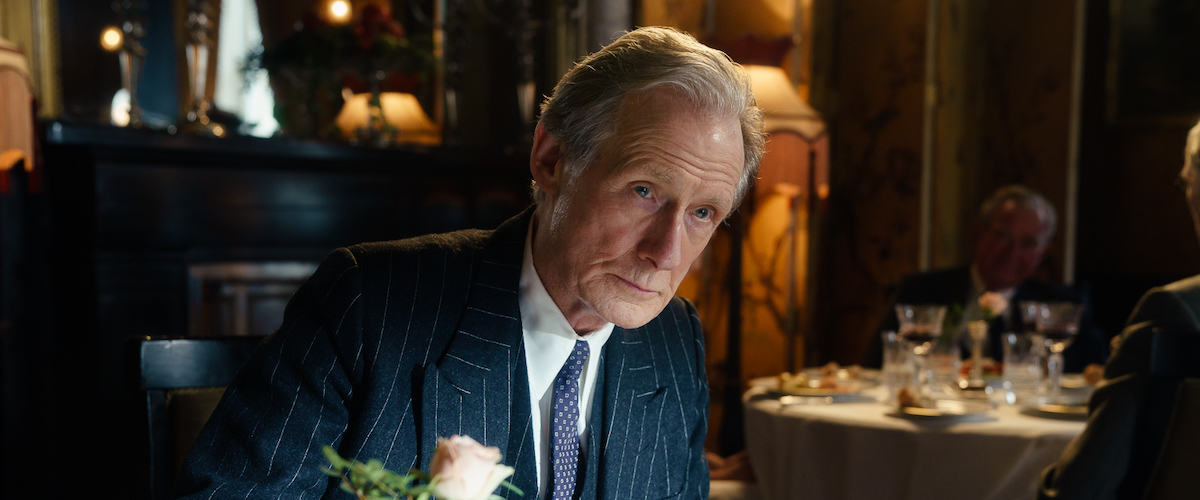Bill Nighy (Love, Actually) stars as Williams, an elder senior citizen who lives a very quiet life – goes to work daily and comes back home to where he resides with his married son and wife. Nighy’s role as a Public Works Department manager for the state in 1950s London is so vastly different from the 2003 role of Billy Mack in Love Actually and this is a good thing as here, he is the protagonist in Living. This is Nighy’s chance to shine and that he does as he quietly portrays someone who has a stern routine to work and back, no frills, nothing new, until one day he receives a terminal health diagnosis. He doesn’t share what he is going through and after some contemplation, decides to make some changes.
Director Oliver Hermanus has the right actor to be the protagonist for the loose adaptation/remake of Akira Kurosawa’s “Ikiru” (aka “To Live”), a post-World War II drama about a character who is on a similar path after receiving a terminal diagnosis. Perhaps not everyone will enjoy and/or understand the story behind a character who makes choices after the receipt of a terminal diagnosis, but it is relatable for people of a certain age, or someone who is young and thriving, yet suddenly finds their time will soon be up on this Earth. Williams looks sad day in and day out, and yet we see how living each day differently brings about a newfound sense of being.
At work when we first see Williams at his desk, the only female employee of his department, Margaret (Aimee Lou Wood), seems very intelligent and capable of other responsibilities. When the unit of employees are sharing some down time at the office, they state what their nicknames are for other employees. She calls Williams “Mr. Zombie” because of his behavior in/out of the office (and the name suits Williams well when Nighy walks so stiffly, hardly without words for anyone). A trio of female workers seek to have a small playground constructed in what appears to be a lower income neighborhood. They appeal to several departments in the agency and struggle to be heard. Williams notices but doesn’t intervene at first except to have the new employee take them to a different department to help them. This looks real to this day within some bureaucracies in some cities.
Nighy’s performance is such that merits viewing the film. Though he looks sad, quiet and rigid in his day-to-day life, when faced with the news, there seems to be no doubt that Williams will make decisions to make a change in how he proceeds with the remaining time of his life. Once we see him in a pub, there is Nighy displaying his acting chops as a changing character. When he is seen talking with a young woman, he is respectful and takes a sincere interest in her wellbeing even though it may look like the beginning of a love interest to others. Nighy is so good at playing so many different characters over the span of his career, he has no problem showing the audience who is becoming as the days go by.
Source: Sony Pictures Classics
